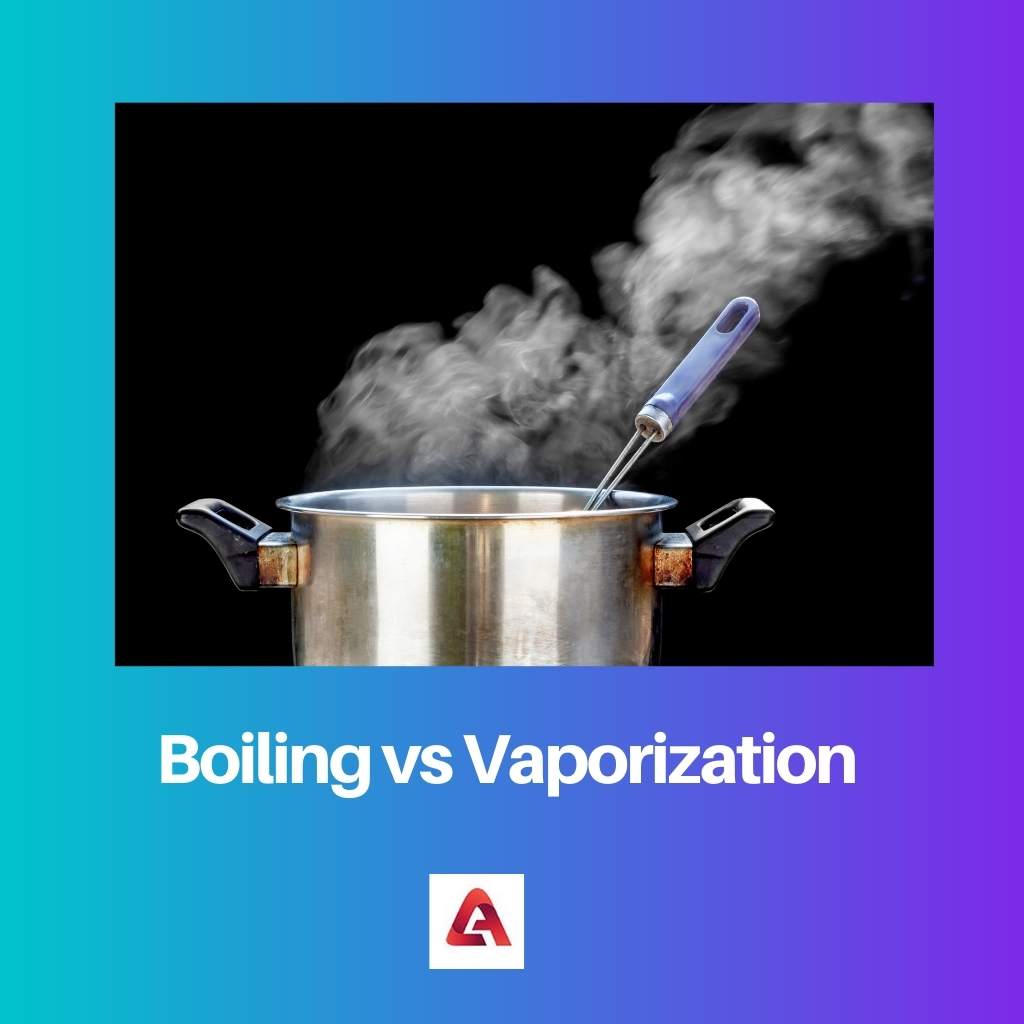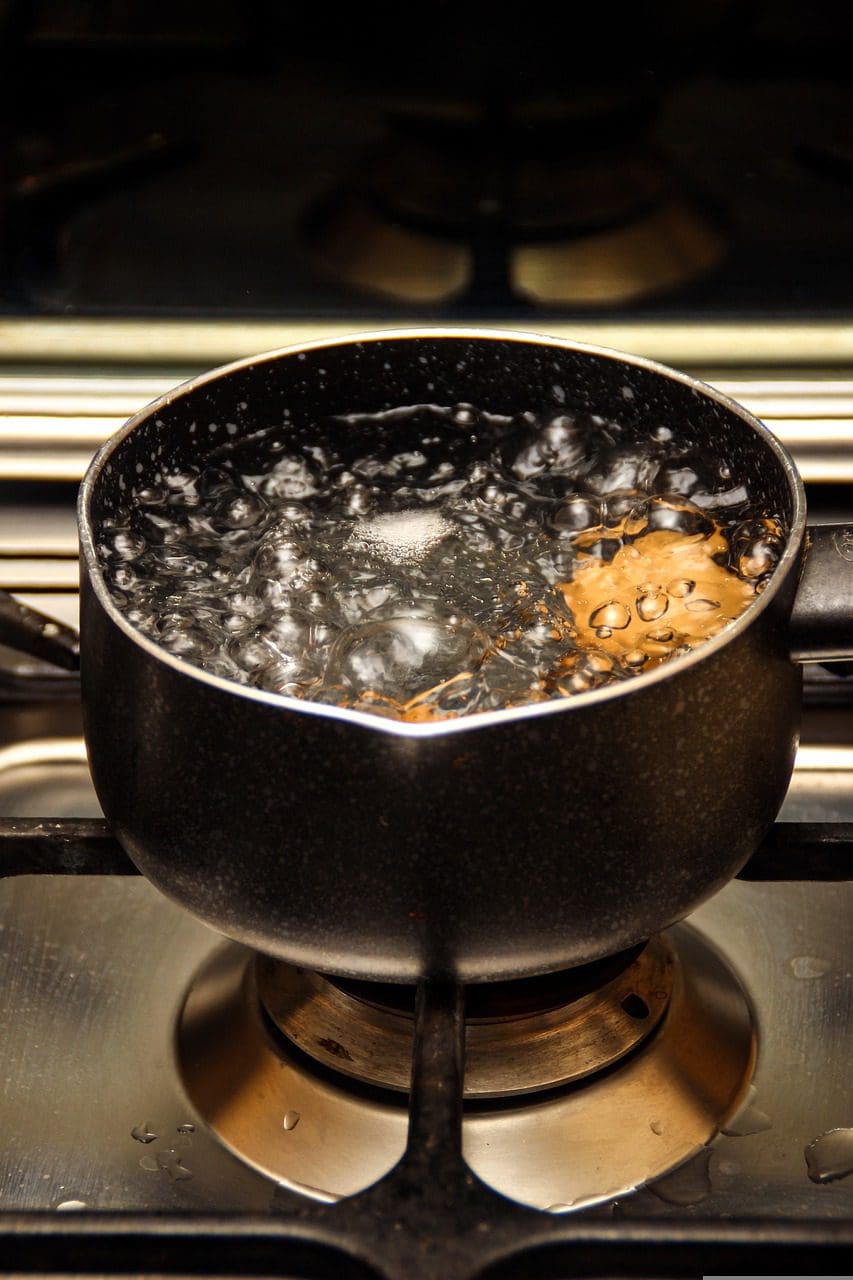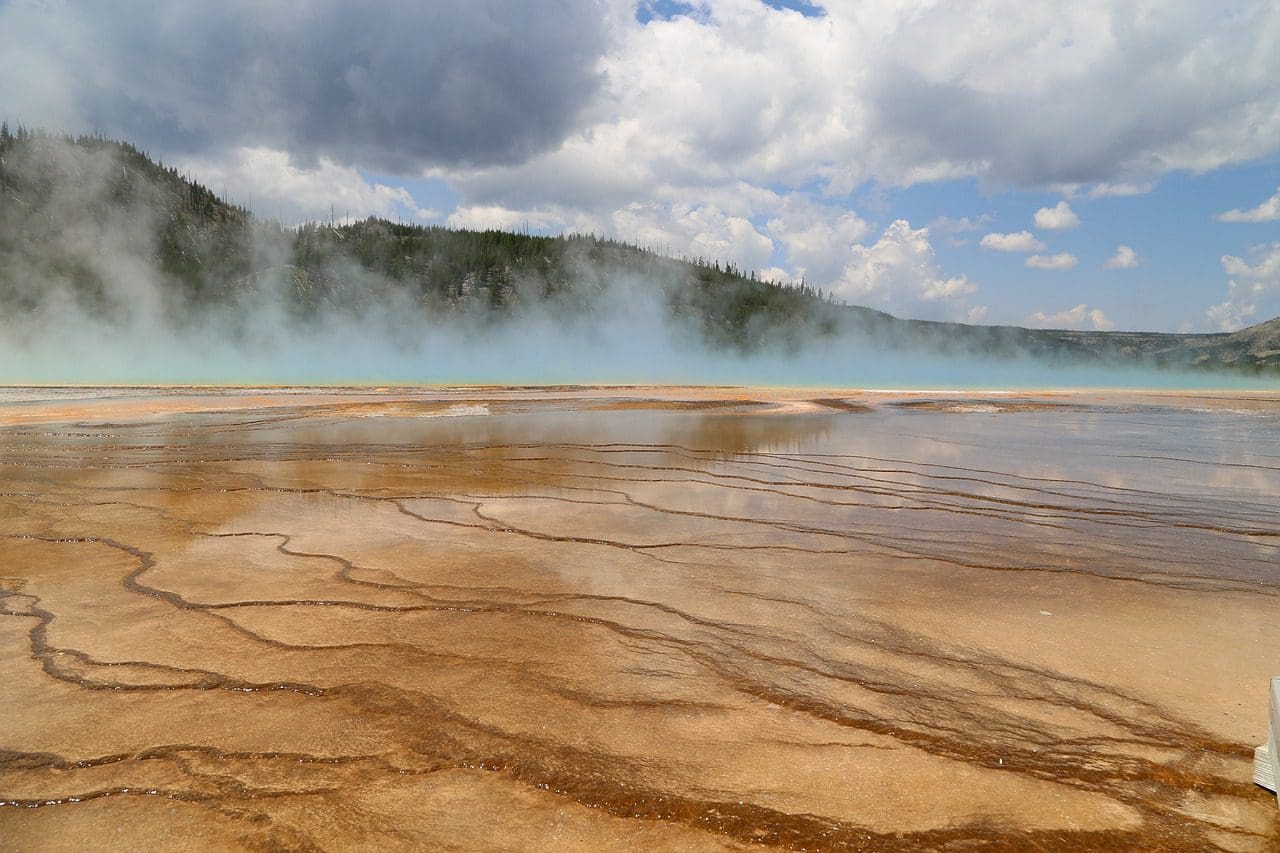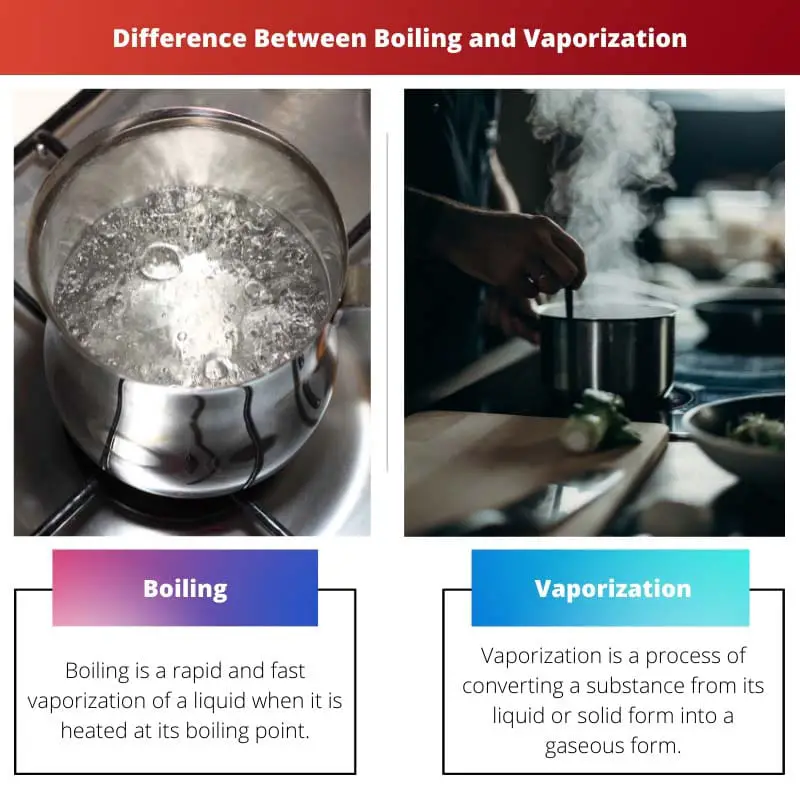Boiling and vaporization are two different scientific phenomena. Vaporization of a compound or element is a phase where vapor and water transform, while boiling is a bulk phenomenon.
Boiling is a rapid and fast vaporization of a liquid when it is heated at its boiling point, and boiling point is a temperature at which the pressure of the vapor on the liquid is equal to the pressure exerted on the liquid by the atmosphere that is surrounding it.
Key Takeaways
- Boiling is a type of vaporization that occurs when a liquid is heated to its boiling point and turns into vapor. In contrast, vaporization is the general term for transforming from a liquid to a gas or vapor.
- Boiling is a rapid process throughout the liquid, while vaporization can occur slowly or quickly, depending on the temperature and pressure.
- Boiling is a type of phase change, while vaporization can occur without a phase change, such as evaporation.
Boiling vs Vaporization
Boiling is a process in which a liquid is heated to its boiling point and undergoes a phase change from a liquid to a gas. Vaporization is a general term that describes the conversion of a substance from a liquid or solid state to a gas or vapor and occurs when a substance absorbs energy.

Boiling is a rapid and fast vaporization of a liquid when it is heated at its boiling point, and boiling point is a temperature at which the pressure of the vapor on the liquid is equal to the pressure exerted on the liquid by the atmosphere that is surrounding it.
Vaporization, in simple words, is a process of conversion of a substance from its liquid or solid form into the gaseous form. At the same time, the direct conversion of a sense from a solid state to a gaseous state is known as sublimation.
Comparison Table
| Parameters of Comparison | Boiling | Vaporization |
|---|---|---|
| Meaning | Boiling is a rapid and fast vaporization of a liquid when it is heated at its boiling point. | Vaporization converts a substance from its liquid or solid form into a gaseous state. |
| Source of energy | For boiling substances, power from an external source is required. | But vaporization can take place while using an internal source. |
| Temperature | Boiling requires a specific temperature for heating a substance, whether it is solid or liquid. | Vaporization does not require a particular temperature and can occur anywhere. |
| Time and period | Boiling occurs very rapidly and is a fast process. | Vaporization is quite a slow process. |
| Bubble formation | Bubble formation takes place while boiling a substance. | No bubble is formed during vaporization. |
What is Boiling?
Boiling is the rapid vaporization of a liquid that happens when the liquid substance is heated to its boiling point. The boiling of a solid substance is called sublimation.
The boiling point of a substance is the temperature at which the essence starts getting heated and changing into a gaseous form. The boiling point of water is 100 degrees Celsius or 212 degrees Fahrenheit.
Boiling the water makes the water potable so that if any microbes or viruses are present, they are killed. Although, the sensitivity of every other microbe varies in the case of heat.

What is Vaporization?
Vaporization, in simple words, is a process of conversion of a substance from its liquid or solid form into the gaseous form. At the same time, the direct conversion of a sense from a solid state to a gaseous state is known as sublimation.
Boiling and evaporation are the two types of vaporization. During vaporization, when the temperature increases, following its result, the kinetic energy in the molecules of the substances are released. Vapors.
There is a total of four factors that affect the rate of vaporization- temperature, the surface area of the substance, pressure, and wind speed.

Main Differences Between Boiling and Vaporization
- During boiling, only the top-level water turns into gas, but in vaporization, all the water to be vaporized turns into gas.
- Boiling occurs rapidly and is a fast process, but Vaporization is relatively slow.

- https://www.annualreviews.org/doi/abs/10.1146/annurev.fluid.30.1.365
- https://inis.iaea.org/search/search.aspx?orig_q=RN:19023105
- https://www.sciencedirect.com/science/article/pii/0360128582900119
Last Updated : 11 June, 2023

Piyush Yadav has spent the past 25 years working as a physicist in the local community. He is a physicist passionate about making science more accessible to our readers. He holds a BSc in Natural Sciences and Post Graduate Diploma in Environmental Science. You can read more about him on his bio page.

An insightful discussion on boiling and vaporization.
I’m quite impressed with the write-up.
This is an article that would appeal greatly to scientific minds.
A very well-researched and structured article.
This scientific explanation is great. Very informative about the differences between boiling and vaporization.
The explanation of the vaporization process is highly fascinating.
Absolutely captivating.
This article gives comprehensive information about boiling and vaporization. Well done!
The part where they discuss the main differences between boiling and vaporization is particularly illuminating.
I agree, a very educational read.
The distinction between boiling and vaporization is clearly established. This is a well-articulated piece of scientific writing.
Absolutely. The information in this article is top-notch.
The comparison between boiling and vaporization is very well elucidated.
I found the comparison quite enlightening.
This article provides an intricate and detailed understanding of the concept of boiling and vaporization.
Agreed, the piece goes into great depth.
The comparison table makes it easy to understand the key differences between boiling and vaporization.
Agreed, very helpful visual aid.
Boiling point and vaporization are intriguing topics. This write-up tackles them well.
I certainly learned something new from this discussion. Good read.